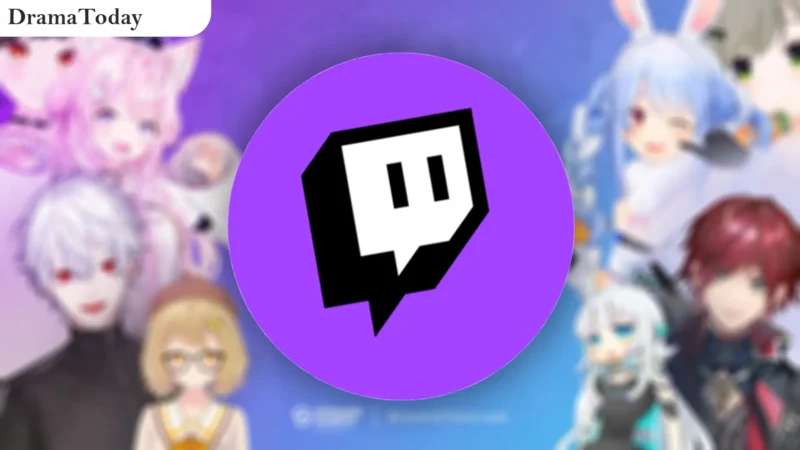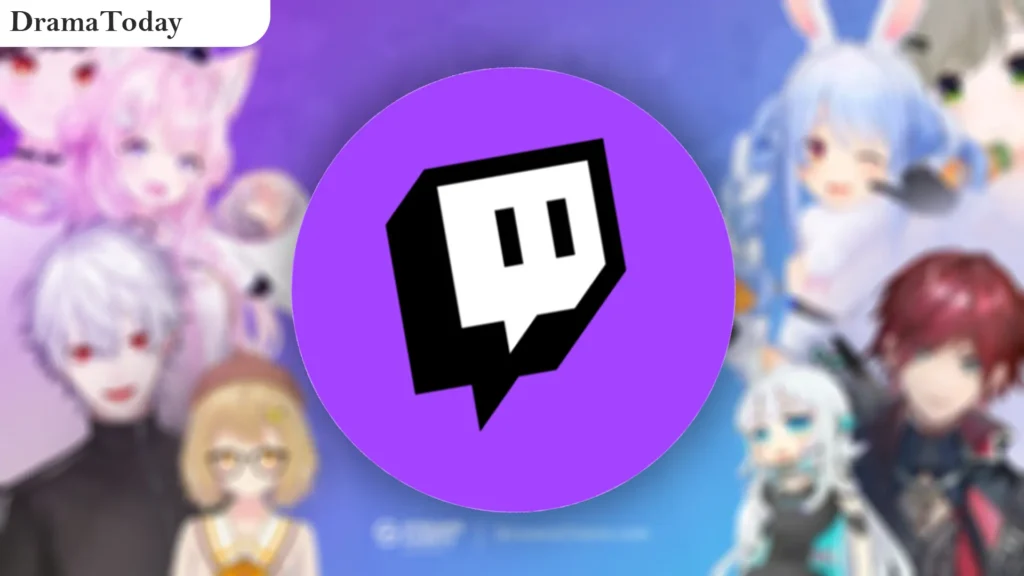The Twitch Controversy: VTubers Banned


In the world of live streaming, Twitch is outstanding for being one of the biggest platforms out there for gamers, content creators, and VTubers. However, a controversy has recently come up that really shook its reputation and left fans and creators in hot debate. Recently, Twitch has been receiving backlash after it banned more VTubers while other content creators seem unaffected with their suggestive and revealing outfits. The question many are asking is, why are VTubers being banned when others seemingly break the rules? Let’s dive in and find out why there is an uproar and what has continuously gone wrong with Twitch’s content moderation policies.
What Is a VTuber?
To understand why the stir on the ban of VTubers is so huge, it’s helpful to understand what a VTuber is. VTubers are also virtual YouTubers or streamers. Avatars applied are usually animated cartoon characters. The reason this trend has lately gotten so big is that people can literally create enjoyable, interactive personas without exposing their identity. People like VTubers because they add this unique angle to streams-things really get super creative. Humor and imagination have no end.
However, VTubers have problems of their own. Since their avatars are designed to be entertaining and communicative, they can often be donned in fancy outfits or animations. Still, virtual characters might take creative liberties not enjoyed by real streamers, yet recent Twitch bans make clear its rules do not always cater to this sort of creativity.
The Problem of Twitch Banning VTubers
Recently, Twitch has been handing out more bans to VTubers than usual, causing outrage from both fans and creators. Many cited these bans as unfair, since they usually ban famous VTubers that don’t show real people on screen. A number of them were banned because of “inappropriate” outfits on their avatars, though they were cartoon characters that aren’t even real people.
The root of the frustration from fans is the fact that the case is riddled with double standards. To begin with, they note that streamers who are not VTubers, wearing lewd clothes-stream in swimsuits or in hot tubs, have faced little, if any, consequences. It’s this disparity that led to accusations of Twitch being biased and inconsistent with enforcing the rules.
Twitch’s Inappropriate Content Policy
Twitch has clear policies on what constitutes inappropriate content. They ban nudity, sexually explicit content, and the suggestion of clothes. On the other hand, Twitch also permits creators to wear swimsuits in “appropriate contexts,” such as in pools, beaches, and hot tubs. This rule seems to have created this subset of streams now referred to as “hot tub streams,” where some streamers broadcast in swimwear while in a hot tub or similar setting.
Hot tub streams, meanwhile, have been divisive in their own right, with many users and streamers feeling they border on pushing the line. Twitch took this as an opportunity to give hot tub streams a category all their own, called “Pools, Hot Tubs, and Beaches.” That way, users can more easily find or avoid said content. But the move hasn’t assuaged concerns that VTubers are being held to a different standard.
Why Viewers Are Outraged Over VTuber Bans
Inconsistent Enforcement: This is arguably the most common criticism about how Twitch enforces the rules. Fans argue that if VTubers are getting banned for their “suggestive” animated outfits, then streamers in revealing real-life outfits should get equal scrutiny, but in reality, those streamers often go back to streaming unabated. This has been blamed upon many accusing Twitch of picking favorites among creators.
Unclear Guidance for VTubers: The unclear guidance on what VTubers’ avatars can wear turns off many VTubers. Since the avatars are digitally made characters, many VTubers believe they should be given room for a bit more expression with the looks. However, Twitch has not given clear guidance in concern to VTubers, and many remain in limbo, unsure of what is acceptable.
Impact on VTuber Communities: VTubers have active communities building up on Twitch, and every ban has its effects. When one of the popular VTubers gets banned, their fans often feel alienated from the platform, especially in situations when they feel the ban was not called for. Of course, this leads to big trust issues in the platform itself, at times even calling for their favorite VTubers to move onto other platforms.
Loss of Livelihood: Twitch, in many VTubers’ cases, means livelihood. A ban results in the loss of revenue and may also affect viewership motives to continue supporting a creator. In case it seems unfair, then the career and fanbase of a VTuber are seriously jeopardized.
Twitch Response So Far
While Twitch hasn’t weighed in on the specifics of these recent VTuber bans, the company has previously said it wants to keep the platform a safe, inclusive space for all viewers. The company has also said it values creators of all types, including VTubers. But Twitch’s silence on specifics has only fanned the flames of suspicion and disappointment from fans.
To that end, some fans have called for Twitch to develop a VTubers category-one that would provide the same kinds of accommodations that the “Pools, Hot Tubs, and Beaches” category did for hot tub streams. This might give VTubers more leeway while clearly signaling to both Twitch’s moderation team and viewers that the stream will include an animated, stylized character. That might give it a better framework to let VTubers experiment with their avatars without the constant worry of getting banned for minor infractions.
Does Other Platforms Provide an Avenue for VTubers?
With frustration on Twitch mounting, many VTubers and their fans have been looking to other platforms. Sites like YouTube and Kick have welcomed several VTubers who feel that Twitch’s policies are too restrictive. YouTube, for instance, boasts a far larger audience with somewhat looser content guidelines than Twitch, which makes the site a very attractive option. Kick is newer but has presented itself as more creator-friendly and open to content.
It’s also important to consider that platforms offering more creative freedom have their problems too. A transition to a different platform will indeed have VTubers lose a fraction of their audience, since not all fans can be counted upon to follow a creator through a website changeover. But should Twitch continue to ban VTubers without explaining themselves, more might be willing to take this risk.
The Larger Issue: Consistency and Fairness
The VTuber outrage points to a larger concern with the moderation policies on Twitch: too many users and creators feel that Twitch is not transparent enough in its rules and/or capriciously enforces said rules. Indeed, this is not the first time that Twitch has received criticism for its policies on content-it’s a recurring issue that often creates hot debates amongst creators and fans.
Other creators have said that Twitch needs to create a system where appeals are black and white; that way, they would know precisely why they were banned and how to specifically avoid some things in the future. Moreover, many people feel that Twitch moderators need clearer training or guidelines regarding the consistent application of the rules.
The future will be interesting to see the platform take more of an active role in collaboration with the community to build a set of rules that can be fair for all-be they VTubers, traditional streamers, or boundary-pushing creatives. If Twitch is able to build a system that feels fair and clear, it might avoid at least some future controversies and sustain user trust.
Twitch and VTubers: The Road Ahead
As this controversy continues to unfurl, one thing is for sure: Twitch has reached a crossroads. Its ability to balance creativity and community standards-and fairly treat creators-will be the determining factors in its future. VTubers have quickly become part of the staple that makes up the culture of Twitch, and pushing them away could bring dramatic effects.
The VTuber bans serve as a reminder that Twitch’s moderation policies are in dire need of an update. Clearer guidelines, fairer enforcement, and a more transparent appeals process-join the list of reasons why the fans and creators alike want these aspects updated. If Twitch can fix these issues, it would go a long way toward securing its standing as a leading platform for all types of content creators. If not-sooner or later, this might lead to more creators and fans migrating to other platforms.
Ultimately, of course, the solution will come in consistent and equitable policy that will protect and foster the wide variety of creators making Twitch their digital residence. For now, though, the debate over VTuber bans goes on, its fans in suspense over how-or if-Twitch will budge.
